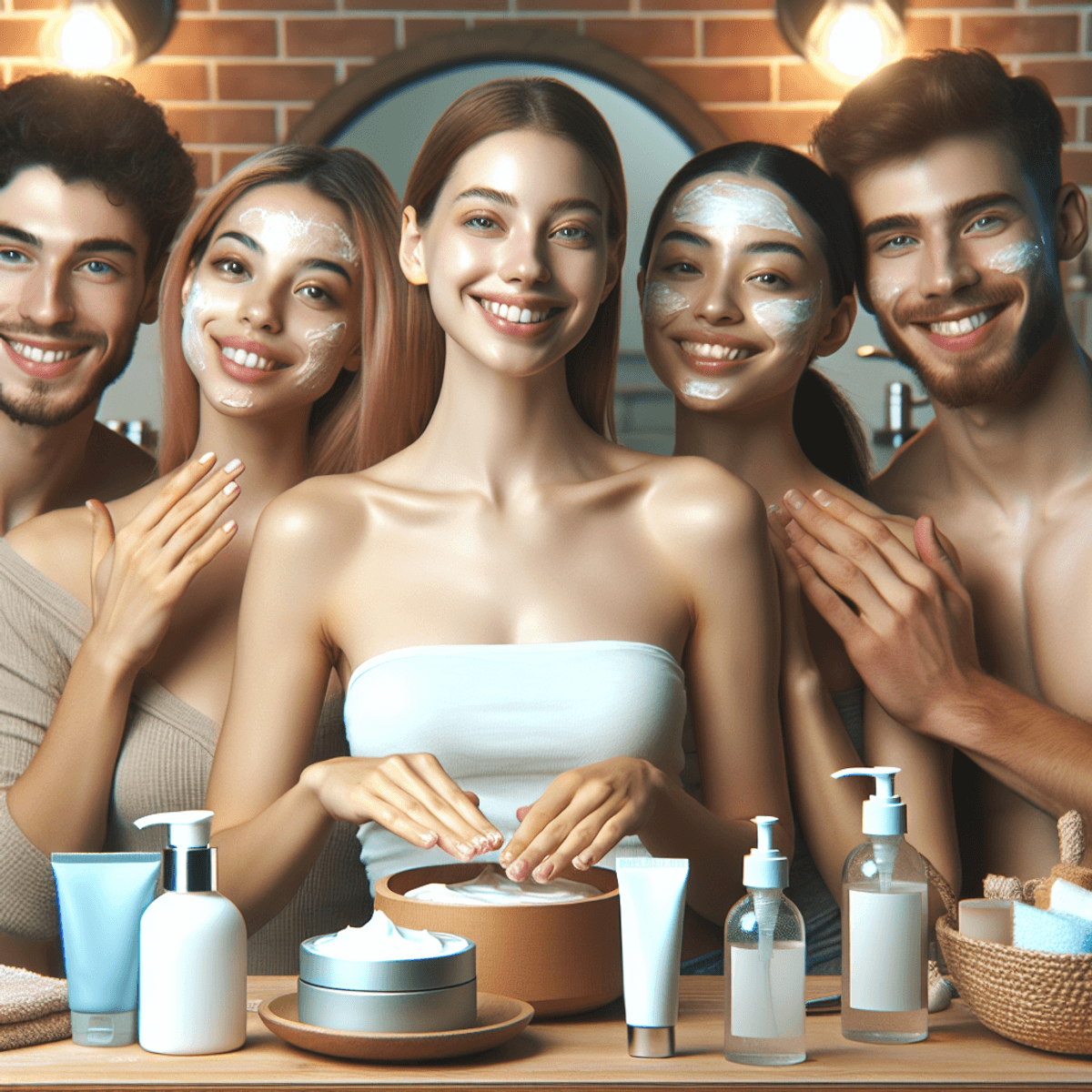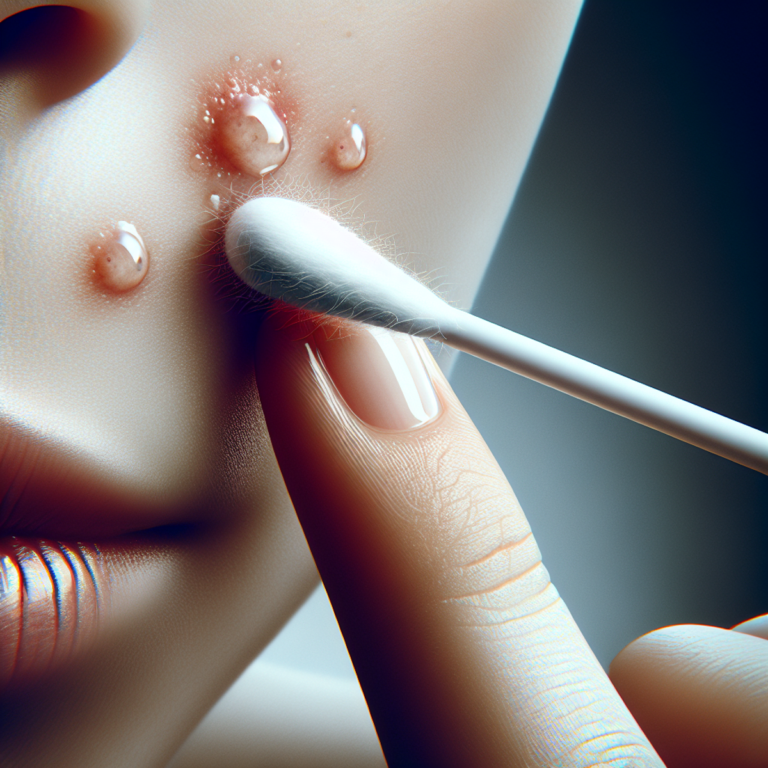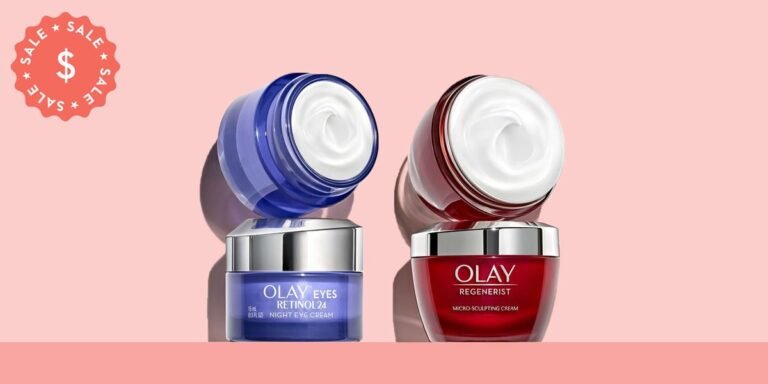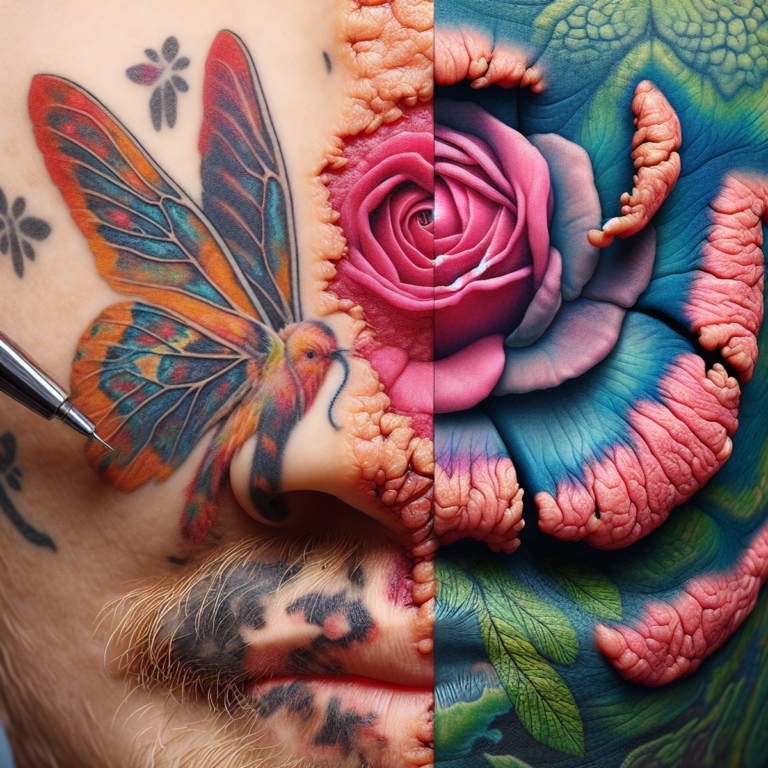How to Prevent Acne: 15 Things to Try

Introduction
Acne is a common skin condition that affects millions of people worldwide. It shows up in different ways like pimples, blackheads, and cystic acne, usually caused by clogged pores, bacteria, and hormonal changes. Knowing how to prevent acne is essential for keeping your skin clear.
In this guide on “How to Prevent Acne: 15 Things to Try,” you will learn:
- The importance of a consistent skincare routine.
- Effective over-the-counter treatments.
- How lifestyle choices impact your skin health.
By implementing these 15 strategies into your daily routine, you can take significant steps toward preventing and managing acne.
Understanding Acne
Acne can show up in different ways, and each type needs its own way of handling and preventing it. Let’s dive into the types and causes of acne.
Types of Acne
1. Pimples (Papules and Pustules)
- Papules: Small red bumps that are often tender to the touch.
- Pustules: Similar to papules but contain pus, giving them a white or yellow center.
2. Cystic Acne
This type is marked by large, painful lumps under the skin. These cysts are filled with pus and can leave significant scars if not treated properly.
3. Blackheads and Whiteheads
- Blackheads: Open pores that look black because of oxidized trapped oil.
- Whiteheads: Closed pores where the trapped oil stays white because it’s covered by a layer of skin.
Common Causes and Triggers
Knowing what causes acne is key to stopping it. Here are some common reasons:
Hormonal Changes
Hormone changes during puberty, menstruation, pregnancy, or due to conditions like polycystic ovary syndrome (PCOS) can increase oil production, leading to clogged pores.
Bacteria
The bacterium Propionibacterium acnes loves oily areas. It can grow in clogged pores, causing inflammation and breakouts.
Lifestyle Factors
- Diet: Foods high in sugar and dairy products might trigger acne in some people.
- Stress: Raises cortisol levels which can worsen acne.
- Hygiene: Bad skincare habits or touching your face a lot can move oils and bacteria to your skin.
To effectively manage acne, start by identifying these triggers and creating personalized strategies to address them. By using the right skincare routine and making lifestyle changes, you can achieve clearer skin.
1. Maintain a Consistent Cleansing Routine
Maintaining a consistent cleansing routine is essential in preventing acne. Washing your face twice daily plays a crucial role in removing dirt, excess oil, and impurities that can clog pores. This simple step can significantly reduce the likelihood of breakouts.
Choosing the Right Cleanser
Selecting an appropriate cleanser for your skin type is pivotal. Look for a sulfate-free formula to avoid stripping your skin of its natural oils. For oily or acne-prone skin, opt for cleansers with ingredients like salicylic acid which can help unclog pores. If you have dry or sensitive skin, choose a hydrating cleanser with soothing ingredients like glycerin or hyaluronic acid. You might even consider trying the Calendula Deep Cleansing Foaming Face Wash from Kiehl’s, known for its gentle yet effective cleansing properties.
Techniques for Effective Cleansing
Using proper techniques ensures you’re getting the most out of your cleansing routine:
- Use gentle circular motions: This helps promote blood circulation without irritating the skin.
- Avoid scrubbing too hard: Harsh scrubbing can damage your skin’s barrier and exacerbate acne.
- Lukewarm water: Hot water can strip the skin of its natural oils, while cold water may not effectively remove all debris.
Incorporating these skincare tips into your daily regimen can make a noticeable difference in maintaining clear and healthy skin. Consistency is key; sticking to this routine will help keep acne at bay and improve overall skin texture.
2. Moisturize Your Skin Appropriately
Moisturizing is a crucial step in any skincare routine, especially when aiming to prevent acne. A well-hydrated skin barrier can help keep your skin balanced and less prone to breakouts.
Role of Moisturizers in Preventing Breakouts
- Maintains Skin’s Moisture Barrier: Proper moisturization ensures that your skin’s moisture barrier remains intact. This barrier protects your skin from external irritants and prevents it from becoming overly dry or oily.
- Prevents Overproduction of Oil: When your skin is dehydrated, it may produce excess oil to compensate, which can clog pores and lead to acne. Using a suitable moisturizer helps maintain optimal hydration levels.
How to Choose a Suitable Moisturizer for Your Skin Type
Selecting the right moisturizer can make a significant difference in how your skin responds:
- Non-Comedogenic Options: Look for products labeled as non-comedogenic, meaning they are formulated not to clog pores. This feature is essential for anyone prone to breakouts.
- Lightweight and Oil-Free Formulas: If you have oily or acne-prone skin, opt for lightweight, oil-free moisturizers. These formulations provide necessary hydration without adding extra oil that could contribute to acne.
- Ingredients to Look For:
- Hyaluronic acid: Known for its hydrating properties without being heavy or greasy.
- Glycerin: Attracts moisture to the skin and helps maintain hydration.
- Ceramides: Help restore the skin’s natural barrier and retain moisture.
Practical Tips
- Application Frequency: Apply your moisturizer twice daily—once in the morning and once at night after cleansing.
- Patch Test New Products: Before introducing a new moisturizer into your routine, perform a patch test to ensure it doesn’t cause irritation or breakouts.
Incorporating these practices into your skincare regimen can help you achieve a balanced complexion while effectively managing acne.
3. Use Over-the-Counter Treatments Wisely
Effective Ingredients to Look For
When dealing with acne, over-the-counter (OTC) treatments can be very effective. The key is to know which ingredients to look for:
- Benzoyl Peroxide: This ingredient works by killing the bacteria that cause acne. It also helps to reduce inflammation and clear blocked pores. Available in various strengths, benzoyl peroxide is suitable for treating both mild and moderate acne. Learn more about how Benzoyl Peroxide works.
- Salicylic Acid: Known for its ability to penetrate deep into pores, salicylic acid helps to unclog them and prevent future breakouts. It’s especially useful for those dealing with blackheads and whiteheads. Read more about Salicylic Acid and its benefits.
How to Apply and How Often to Use
To get the most out of OTC acne treatments without causing irritation, it’s important to follow a few guidelines:
- Start Low: Begin with a lower concentration of benzoyl peroxide or salicylic acid. For instance, start with a 2.5% benzoyl peroxide product or a 0.5% salicylic acid formulation.
- Gradual Increase: If your skin tolerates the initial concentration well, you can gradually increase the strength. This approach helps minimize potential side effects like dryness and peeling.
- Spot Treatment: Apply these products only on affected areas rather than the entire face. This targeted approach reduces the risk of irritation.
- Frequency: Initially, use these treatments every other day or once a day, depending on how your skin reacts. As your skin builds tolerance, you can increase the frequency to twice daily if needed.
- Moisturize: Always pair these treatments with a good moisturizer to prevent excessive dryness. Look for non-comedogenic options that won’t clog pores.
Using OTC treatments wisely involves understanding the active ingredients and how to incorporate them into your skincare routine effectively. By starting with lower concentrations and gradually increasing usage, you can achieve clearer skin while minimizing potential irritation.
4. Be Mindful of Makeup During Breakouts
Applying makeup during acne flare-ups can make the condition worse. Some products have ingredients that block pores and cause inflammation, so it’s important to choose your makeup carefully.
How Makeup Can Make Acne Worse:
- Pore-Clogging Ingredients: Comedogenic ingredients like lanolin, mineral oil, and certain dyes can block pores.
- Increased Inflammation: Using heavy foundations or powders can trap bacteria and oil, leading to further breakouts.
Recommendations for Makeup Products That Are Safe for Breakout-Prone Skin:
- Non-Comedogenic Products: These formulations are specifically designed not to block pores. Check labels for “non-comedogenic” to ensure suitability for acne-prone skin.
- Oil-Free Options: Opt for oil-free foundations and concealers to avoid adding excess oil to your skin, which can worsen breakouts.
- Mineral Makeup: Mineral-based products often contain fewer irritants and provide a breathable layer that doesn’t clog pores.
- Fragrance-Free Formulas: Fragrances can irritate sensitive skin; choosing fragrance-free options reduces this risk.
- Lightweight Coverage: Instead of heavy foundations, use a tinted moisturizer or BB cream with non-comedogenic properties.
By selecting the right makeup products and being cautious about their application, you can maintain healthy skin while managing acne effectively.
5. Practice Good Hygiene Habits for Clear Skin
Touching your face frequently can transfer bacteria, oils, and dirt from your hands to your skin, contributing to acne formation. This seemingly innocent habit can significantly impact your complexion.
Tips to Reduce Face-Touching Habits:
- Be Conscious: Awareness is the first step. Try to catch yourself when you bring your hands to your face.
- Keep Hands Busy: Engage in activities that keep your hands occupied, such as fidget toys or stress balls.
- Use Reminders: Sticky notes on your computer or phone can serve as gentle reminders not to touch your face.
- Practice Good Hand Hygiene: Wash your hands regularly with soap and water to minimize bacterial transfer when you do touch your face.
Incorporating these hygiene habits into your daily routine can play a crucial role in preventing acne breakouts. By reducing the transfer of bacteria and maintaining clean skin, you take a proactive step toward clearer skin.
6. Pay Attention to Your Diet Choices
The connection between what you eat and acne is a popular topic in skincare discussions. Some foods can cause breakouts, while others can help keep your skin clear and healthy.
Foods That May Trigger Acne
- Dairy Products: Milk and other dairy products contain hormones that can stimulate oil glands, potentially leading to clogged pores and acne.
- Sugary Foods: High-glycemic foods like sweets, sodas, and white bread can cause spikes in blood sugar levels. This, in turn, leads to increased insulin production, which may contribute to acne flare-ups.
Benefits of a Balanced Diet
Adopting a balanced diet rich in fruits and vegetables provides essential vitamins and antioxidants that support skin health. Consider incorporating:
- Fresh Fruits: Berries, oranges, and apples are packed with vitamins that help reduce inflammation.
- Vegetables: Leafy greens like spinach and kale offer robust antioxidant properties that combat free radicals.
- Whole Grains: Foods such as oats and quinoa provide fiber, helping regulate blood sugar levels.
By paying attention to what you eat, you can significantly influence your skin’s condition. A balanced diet not only nourishes your body but also contributes to clearer skin.
7. Stay Hydrated from Within
Hydration plays a crucial role in maintaining healthy skin. Drinking enough water helps keep your skin soft, gets rid of toxins, and balances oil production.
Key Benefits of Hydration:
- Maintains Skin Elasticity: Well-hydrated skin remains elastic and resilient. This helps in preventing the formation of fine lines and wrinkles.
- Detoxifies the Body: Adequate water intake aids in flushing out toxins that could potentially contribute to acne breakouts.
- Balances Oil Production: Proper hydration helps regulate the skin’s oil production, reducing the likelihood of clogged pores.
Recommended Daily Water Intake:
Health experts suggest drinking about 8 glasses of water per day, equivalent to approximately 2 liters. If you have an active lifestyle or live in a hot climate, increasing your water intake is beneficial.
Tips for Staying Hydrated:
- Carry a Water Bottle: Keeping a water bottle handy ensures you can sip throughout the day.
- Eat Water-Rich Foods: Incorporate fruits and vegetables with high water content like cucumbers, oranges, and strawberries into your diet.
- Set Reminders: Use apps or set alarms to remind yourself to drink water regularly.
By prioritizing hydration, you not only support overall health but also enhance your skin’s ability to combat acne effectively.
8. Protect Your Skin from Harmful UV Rays
Too much sun can harm your skin, making acne worse and possibly causing long-term issues like early aging and a higher chance of skin cancer. The sun’s UV rays can lead to inflammation and redness, which might make existing acne problems worse.
Sun protection measures are essential in maintaining clear and healthy skin. Here are some key strategies:
- Use Non-Comedogenic Sunscreen: Pick a broad-spectrum sunscreen that shields against both UVA and UVB rays. Ensure it’s non-comedogenic, so it won’t block pores.
- Daily Application: Use sunscreen every day, even when it’s cloudy or you’re staying indoors, as UV rays can go through windows.
- SPF Level: Choose sunscreens with an SPF of at least 30 for sufficient protection.
- Reapply Regularly: Put on sunscreen again every two hours when outside, and more often if swimming or sweating.
Some recommended products include:
- EltaMD UV Clear Broad-Spectrum SPF 46: This lightweight formula is ideal for acne-prone skin.
- Neutrogena Clear Face Liquid Lotion Sunscreen SPF 55: Known for its non-greasy texture that doesn’t clog pores.
By incorporating these sun protection measures into your daily routine, you help prevent acne flare-ups triggered by sun exposure while safeguarding your skin’s overall health.
9. Manage Stress Levels for Better Skin Balance
Stress can significantly impact your skin’s health, triggering hormonal changes that often lead to breakouts. When you’re stressed, your body produces more cortisol, a hormone that can increase oil production and inflammation in the skin, both of which contribute to acne.
Effective stress management techniques for clearer complexion include:
- Yoga: Practicing yoga helps reduce stress by promoting relaxation and improving blood circulation, which benefits your skin.
- Meditation: Regular meditation can lower cortisol levels, helping to maintain hormonal balance and reduce the likelihood of acne flare-ups.
- Deep Breathing Exercises: Simple breathing exercises can be effective in calming the mind and reducing stress-induced hormone production.
- Physical Activity: Engaging in regular exercise releases endorphins, known as “feel-good” hormones, which help combat stress and improve overall skin health.
- Adequate Sleep: Ensuring you get enough sleep supports your body’s natural repair processes, reducing stress levels and promoting clearer skin.
Implementing these strategies consistently not only contributes to a balanced mind but also supports a healthier complexion by mitigating the adverse effects of stress on your skin.
10. Keep Your Hair Clean and Oil-Free Too!
Your hair care routine can significantly impact the health of your facial skin. Hair products like shampoos, conditioners, and styling gels may contain oils and chemicals that can transfer to your face, leading to clogged pores and breakouts.
Recommendations for Maintaining Clean Hair
- Choose the Right Products: Opt for hair products labeled as non-comedogenic or oil-free to minimize the risk of transferring pore-clogging ingredients to your skin.
- Wash Regularly: Shampooing your hair regularly, especially if you have oily hair or use heavy styling products, helps keep both your hair and face free from excess oils.
- Keep Hair Off Your Face: Avoid letting your hair rest on your face, particularly when you’re sleeping. Tying your hair back can prevent oils and product residues from transferring onto your facial skin.
- Rinse Thoroughly: Ensure that you rinse out all shampoo and conditioner thoroughly to avoid leaving residues that can irritate your skin.
Maintaining a clean hair care routine supports clearer, healthier skin by reducing the potential for acne-causing transfers.
11. Resist the Urge to Pop Those Pimples!
Picking at pimples can lead to severe consequences, including scarring and infection. When you pop a pimple, you risk pushing bacteria and debris deeper into the skin, which can cause more inflammation and prolonged healing time.
Risks of Popping Pimples
- Scarring: Squeezing pimples often results in permanent scars that are difficult to treat.
- Infection: Introducing bacteria from your hands can lead to infections, worsening the breakout.
- Inflammation: Picking increases redness and swelling, making the pimple more noticeable.
Best Practices for Natural Healing
Allowing pimples to heal naturally is key to maintaining clear skin. Here are some effective pimple care tips to avoid scarring or infection risk:
- Spot Treatments: Use over-the-counter spot treatments with benzoyl peroxide or salicylic acid to target individual pimples.
- Ice Application: Apply ice wrapped in a clean cloth to reduce swelling and redness.
- Hydrocolloid Bandages: These can absorb excess fluid and promote faster healing without irritation.
- Gentle Cleansing: Keep your face clean using a mild cleanser twice daily.
By following these practices, you’ll understand how to prevent acne effectively without resorting to damaging habits like popping pimples.
12. Consider Environmental Factors in Your Skincare Journey
Environmental factors, particularly pollution, play a significant role in acne development. Airborne pollutants such as dust, dirt, and harmful chemicals can settle on your skin, clogging pores and leading to breakouts. Understanding how to mitigate these effects is crucial for maintaining healthy skin.
Pollution Effects on Skin Health
- Clogged Pores: Particulate matter from polluted air can penetrate the skin’s barrier, leading to clogged pores.
- Inflammation: Pollutants can cause oxidative stress, resulting in inflammation and aggravating existing acne.
- Loss of Elasticity: Long-term exposure to pollution may weaken the skin’s structural integrity.
Maintenance Strategies
1. Cleansing
- Wash your face twice daily with a gentle cleanser specifically designed to remove pollutants.
- Use lukewarm water and avoid harsh scrubbing which can irritate your skin.
2. Topical Antioxidants
- Incorporate products containing antioxidants like Vitamin C or E into your skincare routine to neutralize free radicals caused by pollution.
- Look for serums or creams that are formulated to protect against environmental damage.
3. Barrier Repair
- Use moisturizers that strengthen the skin barrier, making it less susceptible to pollutant penetration.
- Opt for non-comedogenic products to avoid clogging pores while providing necessary hydration.
4. Protective Measures
- Consider wearing a hat or scarf when exposed to heavy pollution areas.
- Regularly clean electronic devices like phones that come into contact with your face.
By integrating these strategies into your skincare regimen, you can effectively combat the detrimental impact of environmental factors on your skin health.
When Should You Seek Professional Help?
Persistent or severe acne can be more than just a cosmetic concern. If you’ve tried multiple over-the-counter treatments and home remedies without success, it might be time to consult a dermatologist.
When to See a Dermatologist:
- Chronic Acne: If your acne persists for several months despite consistent treatment.
- Severe Breakouts: Instances of cystic or nodular acne that are painful and deep under the skin.
- Scarring: When acne leaves permanent scars, which can be difficult to treat with over-the-counter products.
- Emotional Impact: If acne affects your self-esteem or mental health.
Treatment Options Offered by Dermatologists:
- Prescription Medications:Topical Retinoids: Improve cell turnover and reduce clogged pores.
- Antibiotics: Reduce bacteria and inflammation.
- Oral Contraceptives: Regulate hormones that contribute to acne in women.
- Advanced Therapies:Laser Therapy: Targets bacteria and reduces oil production.
- Chemical Peels: Remove the top layer of skin to unclog pores and reduce scarring.
- Drainage and Extraction: For large cysts or nodules, providing immediate relief.
Consulting a professional ensures you receive personalized advice and treatment plans tailored to your specific skin needs. Following dermatologist recommendations based on severity level cases can significantly improve your skin health.
FAQs (Frequently Asked Questions)
What are the common causes of acne?
Common causes and triggers of acne include hormonal changes, bacteria, and lifestyle factors. Understanding these can help in preventing breakouts.
How often should I cleanse my face to prevent acne?
It is important to wash your face twice daily to remove dirt and excess oil. Using a mild, sulfate-free cleanser suitable for your skin type is recommended.
What type of moisturizer should I use if I have oily or acne-prone skin?
Opt for lightweight, oil-free, and non-comedogenic moisturizers. These help maintain your skin’s moisture barrier without clogging pores.
Why is it important to avoid popping pimples?
Popping pimples can lead to scarring or infection. It is best to allow them to heal naturally without intervention to minimize risks.
How can diet affect my skin health?
Certain foods, such as dairy and sugars, may trigger acne. A balanced diet rich in fruits and vegetables can benefit overall skin health.
When should I seek professional help for my acne?
If you experience persistent or severe acne issues, it may be time to consult a dermatologist. They can provide treatment options such as prescription medications or laser therapy.










